Unless you grew up with friends or family members in the field of dermatology, your skincare routine was probably developed by plenty of trial and error. You try a lotion and end up with a breakout, you move on to something else.
Even learning how to care for your skin can be a difficult experience without the guidance of someone in the know. What is exfoliating, and is it safe if you have certain skin conditions?
We understand that without a little (or a lot) of hand-holding, it can be hard to learn which skincare tips are best for your skin type and which you should probably avoid.
We put together this guide to help you determine your skin type and learn about what makes your skin work. We’ll also help you understand which skincare products are safe and effective for your skin type and highlight the ingredients you need to get healthy skin and promote skin wellness.
What Is a Skin Type?
A skin type is a classification system used to determine how your skin is functioning and what ingredients and products can be used to help care for it best. Although we will be covering multiple different skin types, the three major skin types are oily, dry, and combination.
The obvious goal of every skin type is to bring it back to homeostasis, where the skin is as close to normal as possible.
What Are the Different Skin Types?
Need help determining your skin type? Here, we’ll talk about the different skin types and how some may overlap with others. In other words, you could have oily and sensitive skin or dry and acne-prone skin.
Normal Skin
Normal skin types are skin types that are perfectly and equally hydrated, with an even skin tone and soft, supple skin feel. Normal skin isn’t dry or itchy, rarely develops a rash or breakout, and has a natural radiance.
You may have had normal skin as a child, but as hormonal changes occur and your skin is exposed to more and more external stressors, your skin type usually changes.
Oily Skin
Oily skin produces more sebum than normal skin types, usually in areas like the t-zone, which consists of your forehead, nose, and chin. While excess oil can be hormonal or a result of genetics, it can also be a sign of dehydrated skin.
When your skin is seriously dehydrated, your sebaceous glands go into overdrive, producing excess oil to compensate for the lack of hydration. This can result in an oily t-zone and even breakouts and blemishes.
Dry Skin
If you have a dry skin type, your sebaceous glands don’t produce enough sebum to keep your skin lubricated. Dry skin often feels tight, itchy, or irritated. In addition to dryness, you might also experience peeling or flaking that aren’t related to using a new skincare product.
Dry skin shouldn’t be confused with dehydrated skin. While dry skin is a skin type, dehydrated skin is a skin condition. The difference is that any skin type (dry, normal, oily, etc.) can be dehydrated at the same time.
Combination Skin
You're said to have combination skin when your skin feels oily in some areas and dry in others. Most of the time, combination skin types have oily t-zones and dry patches on the cheeks. Combination skin is the most common skin type and arguably the most difficult to maintain if you don’t understand it.
Using products designed to soak up oil could result in even drier, dry patches, while using products designed to deliver moisture could make oily areas even more slick.
Sensitive Skin
While sensitive skin is a skin type, it’s a skin type that can overlap with one of the above four skin types. In other words, you can have dry, sensitive skin or combination, sensitive skin.
Sensitive skin is characterized by skin that easily reacts to external stressors like sun, products, pollution, allergens, or other irritants. Unlike non-sensitive skin, sensitive skin is prone to rashes, dryness, redness, and inflammation.
The problem usually lies with the skin barrier. The skin barrier is the uppermost layer of your skin that is home to a little microbiome of flora. This healthy bacteria supports your skin’s pH balance. For someone with sensitive skin, the skin barrier may overreact to common irritants and produces an immune response.
For instance, people dealing with rosacea and eczema often have sensitive skin. While these conditions are manageable, it’s always possible that a “flare-up” could happen.
Acne-Prone Skin
Acne, like dehydration, is a skin condition, not a skin type. You may have blemish-prone skin that is dry, oily, or combination. Blemishes like pimples and blackheads form when dead skin cells on your skin's surface mix with sebum and dirt, forming a clog in your pores.
Blemishes can be difficult to eradicate, especially if you have sensitive or dry skin. Many products that contain famous pimple-fighting ingredients, like salicylic acid or benzoyl peroxide, can cause excess dryness and make your skin condition even worse.
Aging Skin
Over time, your skin begins to change. The skin type you were born with may change, too. As skin ages, a few important differences become noticeable in the way your skin looks.
Skin tone. Due to increased sun exposure, urban pollution, and free radical damage, your once-even skin tone may now look uneven or dull. You may even have areas of uneven pigmentation or sun spots.
Fine lines and wrinkles begin to form. Less collagen and elastin production means that skin has less firmness and elasticity than it once did. This can cause you to develop crow’s feet, smile lines, and other early signs of aging.
Some skin aging is normal, but your skin doesn’t have to age faster than your biological birthday. Read on to find out what ingredients help keep your skin healthy as it ages.
How Can I Identify My Skin Type?
By now, you may have already honed in on your particular skin type. If not, it’s easy to figure out your skin type and what it needs. Grab a gentle cleanser and a clean, soft towel. With lukewarm water, wash your face with the cleanser and pat dry. Don’t apply any other product to your skin.
Thirty minutes after you wash your face, inspect your skin in a mirror and be conscious of how it feels.
If skin feels dry, tight, itchy, or stretched, you likely have dry skin.
Skin that appears slick or oily, or skin that feels like it needs to be blotted with a tissue, is likely oily.
Noticing shiny areas (especially in the t-zone) but feeling like other areas (like cheeks) are dry probably means you have combination skin.
Skin that feels neither oily nor dry, but feels comfortable and looks smooth and supple, is normal skin.
Remember, having sensitive, blemish-prone, or aging skin is usually adjunct to the above four skin types.
What Are Some Products for Each Skin Type?
Once you know your skin type, you can find the right products to develop a skincare routine that keeps your skin healthy, radiant, and balanced.
Normal Skin
If you’re lucky enough to have normal skin, you still need to focus on keeping it balanced and healthy. Using the wrong products can change how your skin behaves and make otherwise happy skin irritated and uncomfortable.
Plant-based products harness the power of natural ingredients that work synergistically with your skin to keep the skin barrier healthy and protected. Furtuna Skin focuses on formulas that are grounded in our award-winning, single-origin, organic extra virgin olive oil, the perfect vehicle for delivering our wild-foraged botanicals to deeply nourish your skin.
The Transformation Set includes everything a normal skin type needs to get started.
Micellar Cleansing Essence does triple duty as a cleanser, toner, and essence deeply cleansing the skin without stripping it of moisture.
Face and Eye Serum. No time for multiple skin treatments? That’s not a problem. With Furtuna Skin Face and Eye Serum, you only need one. Our serum helps depuff the eye area, correct uneven skin tone, and visibly lift the skin. In addition, you’ll get the 100% free radical blocking protection of our proprietary Splendore Anchusa® Complex.
Biphase Moisturizing Oil. So much more than a moisturizer, our blend of olive oil, jojoba oil, and olive leaf water absorbs easily and helps keep the skin’s natural moisture level balanced. 360° Exposome Defense® Complex protects your skin against urban pollution, UV radiation, and digital blue light.
Keeping your normal skin normal? That’s easy. Creating normal skin that thrives requires products that hydrate, restore, and rejuvenate your skin.
Oily Skin
Although you’ve probably been told that your oily skin type needs all the oil-free products on the market, we’d disagree.
Remember, oily skin can be the result of skin that isn’t getting enough hydration. Sebum production increases when skin is parched, so ensuring you’ve got enough moisture is key.
Start by ditching your moisture-stripping cleanser and using a gentle, oil-based cleanser instead. This allows you to cleanse your skin without removing moisture or damaging your skin barrier.
Furtuna Skin’s Micellar Cleansing Essence helps absorb excess oil without leaving skin dry and uncomfortable.
Dry Skin
Dry skin types suffer from a lack of moisture year-round. It can feel impossible to get the level of hydration your skin needs without keeping a humidifier running in every home and office room.
Instead, try hacking the system with a product that resets your skin’s natural rhythm. Furtuna Skin’s Daily Renewal Cream contains seven wild-foraged plants that resync your skin’s circadian rhythm, helping balance it, restore moisture, and bring your skin back to homeostasis.
Combination Skin
It can seem difficult to find the right products for skin that is both oily and dry, but if you focus on correcting the issue at the skin barrier, combination skin easily rebalances.
The Furtuna Skin Custom Discovery Set features a deluxe sample size of some of our best-selling products formulated to work with your skin to restore its balance and help maintain your skin’s natural pH levels.
Sensitive Skin and Blemish-Prone Skin
The ingredients in many traditional skincare products can lead to blemishes and skin irritation. That’s why at Furtuna Skin, you’ll never find GMOs, dyes, toxins, synthetic fragrances, parabens, phenoxyethanol, or any other ingredients that could lead to a flare-up.
Better Products for Better Skin
No matter your skin type, you can have skin that thrives. Knowing your skin type can help you understand how your skin works and what ingredients help keep it radiant and healthy. Plant-based ingredients are the most effective way to naturally care for your skin. At Furtuna Skin, you can give your skin the phytonutrients it needs to radiate wellness and beauty.
Sources:
Skin Types|American Academy of Dermatology
Sensitive Skin: Symptoms, Common Triggers & How It's Treated | Houston Methodist On Health
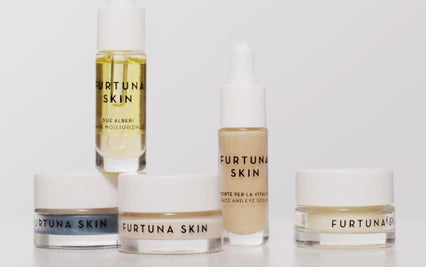
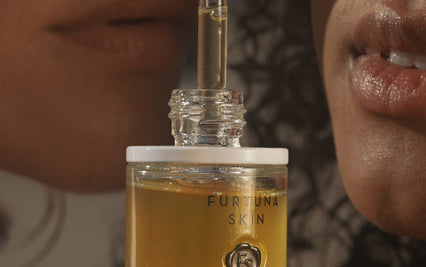
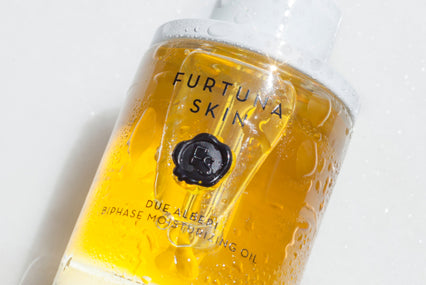
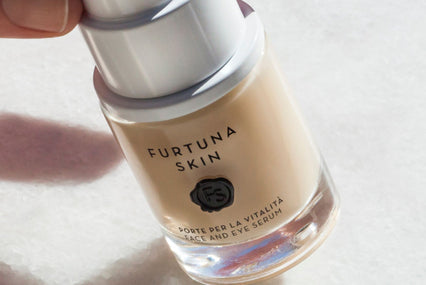
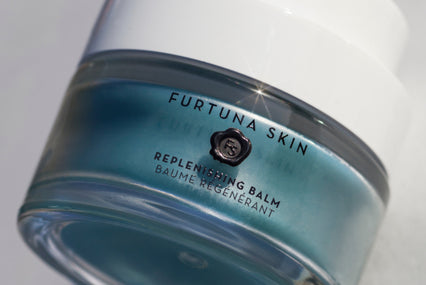
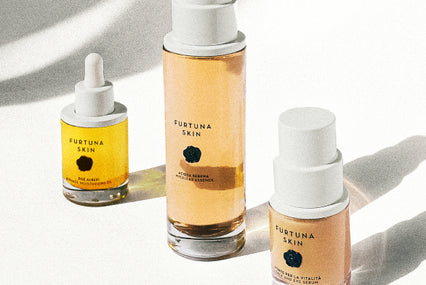






Comment